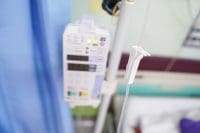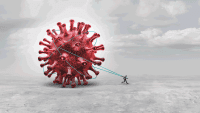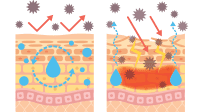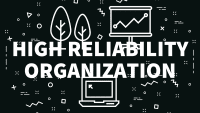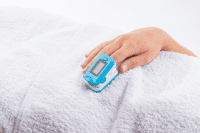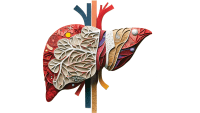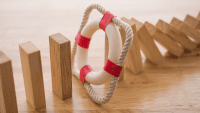According to the Centers for Disease Control and Prevention, self-care habits can help prevent chronic disease and aid in reducing symptoms of mental health conditions 1. In 2020, the American Nurses Foundation embarked on a journey to recognize and prioritize the mental, emotional, and physical health of nurses nationwide 2.
Our mental health is an essential part of our well-being, furthermore, psychological safety for nurses is critical to create substantial improvements in enhancing resiliency. The Iowa Nurses Association is committed to creating a collection of resources to support our individual responsibility to create purposeful, supportive, wellness cultures.
Personal resiliency can be described as using personal protective factors to cope with stress and adverse events to enhance well-being and the ability to face future challenges 3. It is important for healthcare professionals to become active participants in personal self-care.
Self-care involves taking care of yourself physically, mentally, and emotionally. Nurses who regularly engage in holistic self-care activities become fluent in self-assessment and conscious empowerment 4. We can be more effective caregivers and healers while navigating disharmony and imbalance by cultivating a holistic personal practice.
Like building muscle, it takes time and intention to increase resilience. In the current arena of healthcare, focus on these four components to build personal resilience – Wellness, Connection, Healthy Thinking, and Meaning.
Foster Wellness
Strengthening your immune system. Self-care is a legitimate practice for mental health and building resilience. Stress is both physical and emotional. Proper nutrition, hydration, sleep, and regular exercise can strengthen our bodies to adapt to stress and reduce symptoms of anxiety and depression. Try recharging and reset with integrative approaches like infusion-based vitamin therapy.
The term, integrative healthcare is used in a variety of ways that all involve bringing together conventional and complementary approaches in a coordinated way. Worldwide, approximately 65 to 80 percent of the worlds population use healing modalities that were developed outside of conventional allopathic medicine 5. In the United States, more than 30 percent of adults and 12 percent of children use non-conventional health and healing modalities according to the National Center for Complementary and Integrative Health (NCCIH) 6.Infusion-based vitamin therapy provides water soluble vitamins directly to your cells. The restorative impact at a cellular level can last as long as the cells live 7.
Building Connections and Finding Purpose
Join a group, Board, or Committee. Some nurses find being active in civic engagements and other local organizations provides social support and inspires hope. Mahatma Gandhi once said, The best way to find yourself is to lose yourself in the service of others.
Shared lived experience is a courageous component to a resilient team composed of resilient individuals dedicated to creating change. Passion projects give us purpose and foster self-worth.
When we volunteer and tangibly help others, we not only strengthen communities, but we also grow in our resilience by reducing stress, combating depression, anxiety, and increase physical health. We discover a deeper sense of purpose and fulfillment within ourselves.
Healthy Thinking and Mental Health Promotion
Getting the help when you need it is crucial in building your resilience. For many nurses, using their own resources or the strategies listed above may not be enough to build personal resilience, furthermore, nurses are at higher risk of suicide than the general population.
Ironically, risk factors of suicide for nurses are related to being a nurse 8. Other risk factors include issues with management, work/life conflict, feeling unsupported in the role, feeling like you dont belong, scheduling long consecutive shifts, and exposure to repeated trauma.
The ANA recognizes the need to create an atmosphere of acceptance and empathy and normalize conversations about mental health. Suicide happens and its preventable. To mitigate risk, we must acknowledge its ok to not be ok and implement best practices 9.
To access free resources on mental health promotion and prevention, suicide prevention, and grief developed by The American Nurses Association, Building Strength through Resilience Committee visit:nursingworld.org/practice-policy/nurse-suicide-prevention
The National Academy of Medicine also understands the call to action for improved well-being for nurses and clinicians. The Academy of Medicinehas created a plan to improve the well-being of our workforce through a national program initiative, The Action Collaborative on Clinician Well-Being and Resilience. This collaborative is made up of a network of leaders and representatives from many major health organizations across the United States. The program goals are to: 1) raise the visibility of clinician anxiety, burnout, depression, stress, and suicide; 2) improve baseline understanding of challenges to clinician well-being; and 3) advance evidenced-based, multi-disciplinary solutions to improve patient care by caring for the caregiver 10. To learn more about the national plan for workforce well-being visit nam.edu/nationalplan.org.
Please visit INAs website for more Nurse Well-Being Resources.
References:
1 Centers for Disease Prevention https://www.cdc.gov
2 October 2021 ANA Volume 16 NO.10
3 March 2020 ANA Volume 15 NO. 3
4 American Holistic Nurses Association https://www.ahna.org
5 National Center for Complimentary and Integrative Health https://nccih.nih.gov
6 National Center for Complimentary and Integrative Health https://nccih.nih.gov
7 Vitamized Health. Dr Stephen Petteruti January 19, 2022. ISBN 13:9798763802283
8 ANA January 2021. Volume 16. NO. 1
9 Nurse Suicide Breaking the Silence https://nam.edu The National Academy of Medicine (NAM)
10 National Plan for health workforce well-being https://nam.edu The National Academy of Medicine (NAM)












